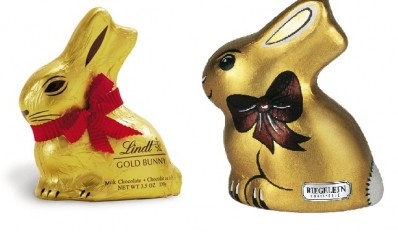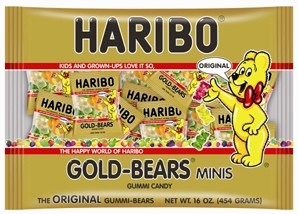Lindt trademark bunny case again sent to lower German court
The Bundesgerichtshof, the German Federal Court, issued its latest ruling on 15 July and reversed the conclusion for the second time of the Oberlandesgericht Frankfurt, which found that the word mark Lindt which is visible on the 3D bunny, precluded any likelihood of confusion with Riegelein's chocolate bunny.
The Oberlandesgericht Frankfurt, in what was a second ruling on the case, had noted that Riegelein's bunny did not have a red ribbon around its neck as per the Lindt bunny, and the facial expressions on both were sufficiently different for consumers to recognise each brand.
The ruling of the Federal Court means the case, which has been ongoing since 2002, has been sent back to the Frankfurt regional court for a third round.
The Swiss manufacturer began production on the chocolate rabbits, with gold foil wrapping, red ribbon and bell, in the 1950s and now produces millions on annual basis. After establishing its trademark for the design in 2001, it has pursued smaller competitors, accusing them of copying its design.
In the cut-throat world of confectionery, innovation is crucial. When a company hits on a best-seller, it makes sense to protect it with a trademark. But simply obtaining the trademark may not be enough to keep competition at bay – and companies may even become the victims of their own success.
In April this year, a French court ordered German manufacturer Candy Team to pay €200,000 in damages to Italian confectioner Ferrero over trademark infringement.
Ferrero claimed that German firm Candy Team were manufacturing, importing and commercializing sweets in France under the name 'Pick Up' with packages that were identical to its Tic Tac products, and thus it instituted legal proceedings against Candy Team before the Paris Court for trademark infringement and parasitism.
The Paris Civil Court of First Instance, states the article, has confirmed that Ferrero’s three-dimensional trademark for products in Class 30, including sweets, was valid following a challenge brought by the company Candy Team.
The court ruled that Candy Team had sought to promote its own products by taking undue benefit from the investments made by Ferrero for its Tic Tac products, which constituted distinct acts of parasitism
However, the court concluded that the challenged packages did not infringe Ferrero's prior rights in its three-dimensional registration, as the overall visual impression between that element and the Pick Up product was different enough to avoid any risk of confusion.






